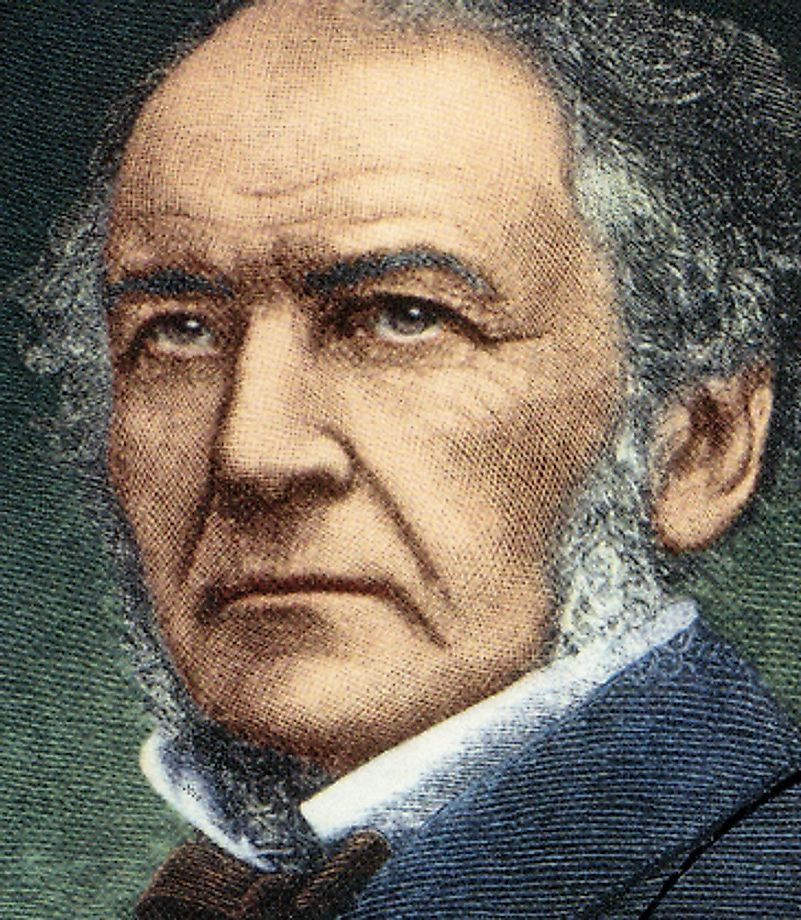William Ewart Gladstone - Prime Ministers of the United Kingdom

5. Early Life
William Ewart Gladstone was born in Liverpool, England on the 29th of December, 1809. He was the fourth son of Sir John Gladstone, who had made his fortune through trade with the Americas and the West Indies, where he owned sugar plantations. After preparatory school at Seaforth near Liverpool, and attendance at Eton between 1821 and 1827, Gladstone went to Christchurch, Oxford from 1828 until 1831. Studying the Classics and Mathematics, he was awarded a double first in both subjects in 1831. It was at the Oxford Union Debating Society that Gladstone developed a reputation for being fine orator, and as an up-and-coming Tory denouncing Whig proposals for a Parliamentary Reform Act.
4. Rise to Power
Gladstone was elected as a Tory Member of Parliament for Newark–on-Trent in 1832, and in 1833 he met fellow Tory, and life-long rival, Benjamin Disraeli. His first office of great national importance was as President of the Board of Trade in Robert Peel’s second ministry (1841-1846), from where he then rose to become Chancellor of the Exchequer in Lord Aberdeen’s government. He was Chancellor again in Lord Palmerston’s second ministry (1859-1865), and when Palmerston died Gladstone stayed on as Chancellor under Lord Russell until 1867, when he became the Liberal Party leader. He became Prime Minister for the first time in 1868, after the Liberal victory in the general election that cycle.
3. Contributions
Only three years before Gladstone had left the Tories to join the Liberals, he had converted to believing in Parliamentary Reform. As Liberal leader, he decisively championed its acceptance in a new form shaped by his arch-rival, Benjamin Disraeli. This move was an indicator of how much Gladstone’s motivation was in terms of principles rather than based on political rivalry. The Reform Act, passed in 1867, was a quantum leap for British democracy, giving the vote to every male adult householder living in a borough constituency. Another seismic act under the watch of this tireless reformer and legislator was the passing of Forster’s Act of 1870. This legislation instituted provisions for elementary education opportunities for all British children between 5 and 13 years of age.
2. Challenges
Gladstone’s first term as Prime Minister ended with Disraeli’s victory in 1874, though Gladstone won again and returned for his second term from 1880 to 1885. Disraeli remained a dogged enemy of Gladstone's throughout his career, despite Gladstone’s championing of Disraeli’s new Reform Act. Gladstone also provoked serious opposition within his own Liberal party, particularly over his Irish policies. In fact, Gladstone gradually came to favor Home Rule for Ireland. Another enemy was Queen Victoria herself, infuriated by Gladstone’s refusal, during one of his terms as Chancellor of the Exchequer, to approve the purchase of the gun metal needed for a monument to her beloved consort, Prince Albert.
1. Death and Legacy
Gladstone’s fourth, and final, term as Prime Minister saw the passing of an Irish Home Rule bill in the House of Commons in 1893. The bill failed to gain approval by the House of Lords, and Gladstone resigned as Prime Minister in March of 1894. Just a little over four years later, he died of a heart attack at Hawarden Castle in May of 1898. He was later buried at Westminster Abbey. Other famous politicians and historians have heaped praise on Gladstone for his personal accomplishments, his writings, his oratory, and his championing of Home Rule for Ireland. He is also remembered for his role in the transformation of the British elementary education landscape, as well as the part he played in the Reform Act and subsequent extensions of it.







